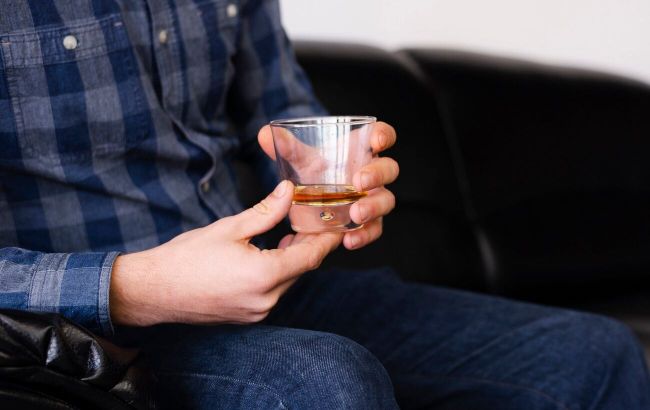7 warning signs of alcohol addiction you shouldn't ignore
 What are 7 signs that you are turning into an alcoholic (photo: freepik.com)
What are 7 signs that you are turning into an alcoholic (photo: freepik.com)
Christmas and New Year’s are just around the corner, and one of the traditions of these holidays is festive gatherings, often accompanied by alcohol. If alcohol is not a problem in your life, you can enjoy your favorite drinks in moderation. But how do you know when you’ve crossed the line and need to stop?
The holidays are a time of joy and family reunions. However, frequent gatherings can have dangerous consequences if alcohol consumption is not controlled. Some habits may indicate the onset of addiction. Experts stress the importance of recognizing the first signs early.
Drinking without control
For most of us, this is not unusual, but intoxication changes our mood. The US National Institutes of Health (NIH) states that alcohol "induces euphoria, relaxation, and disinhibition while reducing stress and anxiety." If you drink regularly without controlling it, you will quickly become drunk. And that’s a bad sign.
The NIH insists that the maximum weekly alcohol limit should not exceed 14 units, which equals seven glasses of beer or cider.
Regular binge drinking
Alcoholism, according to experts, is when a person has an uncontrollable urge to drink. Regularly consuming large amounts of alcohol is a clear sign of addiction. With many festive parties, there’s a significant risk of getting caught up in it.
Alcohol always present during socializing
If you open alcohol at 8 AM, people will surely misunderstand you. However, during the holidays, many people open presents with champagne in their glasses.
For those dependent on alcohol, social interactions are only appealing if drinks are available. If you refuse to attend a social event or meet friends because there’s no alcohol, think about the potential consequences of that decision.
Alcohol becomes part of your daily life
If no day goes by without a glass of wine or a pint of beer, this could be a worrying signal. Regular alcohol consumption, even in small amounts, gradually forms a dependence.
You get irritated by people who don’t drink
When it comes to alcohol, it’s important to respect other people's choices and not be overly insistent. If you feel irritated when others don’t want to drink with you, it’s time to reevaluate what is behind your reaction.
Alcohol affects your productivity
Missed meetings, declining work performance, or feeling unwell after celebrations are signs that alcohol is starting to impact your life.
People around you hint at a problem
If friends or loved ones notice that you’re drinking more frequently and express concern, that’s a serious reason to reflect on your habits.
Important:
- According to the World Health Organization (WHO), regular alcohol consumption increases the risk of over 200 diseases, including cancer and cardiovascular diseases;
- Alcohol affects the brain, reducing the ability to make rational decisions, which can worsen addiction;
- Many people who quit alcohol in time report improvements in sleep, mood, and productivity.
Earlier, we reported on whether female alcoholism exists.
Sources: WHO, National Institutes of Health (NIH), Mental Health Center of Ukraine.
This material is for informational purposes only and should not be used for medical diagnosis or self-treatment. Our goal is to provide readers with accurate information about symptoms, causes, and methods of detecting diseases. RBС-Ukraine is not responsible for any diagnoses that readers may make based on materials from the resource. We do not recommend self-treatment and advise consulting a doctor in case of any health concerns.

